
Editor's note: The Top of the Morning staff is pleased to continue our week-long celebration of the Day of Remembrance with author David G. Woolley through the Jewish Feast day on Monday, September 29th. Today's post deals with one of the lesser known prophetic restoration dates on the Hebrew Calendar pictured above (click here to enlarge). We hope you'll join us daily as we celebrate the Day of Remembrance.
Every September 22nd from 1823 through 1827 Joseph Smith returned to the hill where the golden plate record containing the text of the Book of Mormon lay buried and meet with Moroni. It was a time of economic hardship. Betrayal of neighbors eventually resulted in the loss of the family farm. It was also a time of learning at the feet of Moroni.
Scholars have suggested numerous reasons why Moroni told Joseph that the time had not yet come for him to receive the plates and wouldn’t arrive for four more years. Among the reasons suggested were his youth and inexperience, his need to be tutored and prepared by the angel Moroni for his calling as a prophet, and the need to prove his willingness to keep the commandments of God—something his mother Lucy mentions in connection with his desire to use the precious metal in the plates to answer the oppressive financial burdens of the family.
It is likely that there was another, possibly more encompassing reason than Joseph's preparation. The fulfillment of prophecy. Joseph Smith received the golden plate record for translation early in the morning of September 22nd, 1827, the day appointed for God to remember his covenants with Israel. With the passing of each yearly visit Joseph was fulfilling the Timing of Heaven.
The name most often used for the day on which the Feast of Trumpets is celebrated today is Rosh ha-Shanah which means New Year. Go ahead and click on this Hebrew calendar to find the Feast of Trumpets near the bottom, celebrated on the first day of Tishri, the seventh month on the Hebrew cyclical calendar. Its original name, Ha-Zikaron or Day of Remembrance, is really a new beginning rather than the start of a new calendar year. On this day the Lord is said to move from His seat of judgment to His mercy seat by mercifully providing a new beginning through gathering Israel out of exile, remembering His covenants with their fathers, and restoring them as His covenant people.
This new beginning was to be initiated by the sounding of the trumpet. The night Moroni visited Joseph Smith Jr. for the first time he quoted, among other things, the eleventh chapter of Isaiah, a millennialist prophecy regarding the second gathering of Israel (Terryl Givens, By The Hand of Mormon, Oxford University Press, 2002, p 64). Without referring directly to the ancient Israelite Feast of Trumpets or the Day of Remembrance, Moroni identifies themes of gathering associated with those holy days when he quoted Isaiah, telling Joseph Smith that God will set up an “ensign for the nations, and gather the outcasts of Israel, and gather together the dispersed of Judah, from the four corners of the earth (Isaiah 11:12).
Though the Feast of Trumpets is celebrated on the first day of the seventh month of the Hebrew calendar as prescribed by the Old Testament, that day does not fall on the same day each year on the solar calendar used in western societies. The months of the Hebrew calendar are determined by the lunar cycle and the date for the feast (Leviticus 23:24) falls anywhere between the first days of September to as late as the first days of October on the western solar Gregorian calendar.
You can use this Hebrew calendar converter to input any day from the Gregorian calendar and find the Hebrew calendar date. If you input Joseph Smith's first visit to the hill on September 22nd, 1823 you'll find that the Day of Remembrance was celebrated 17 days earlier on the first day of Tishrei (sometimes spelled Tishri). In 1824 the celebration occurred two days after Joseph's visit with Moroni on the 29th day of previous Hebrew month called Elul. In 1825 the feast fell ten days before Joseph's return to the hill. In 1826 it was celebrated ten days after Joseph's yearly pilgrimage. And in 1827, the day when Joseph was entrusted with the golden plate record and came down from the hill with what he called a new Covenant, Jews across the world were celebrating the Day of Remembrance on the 1st day of the Hebrew month of Tishrei.
Most scholars agree that the main theme for Rosh Hashanah is remembrance—God’s remembrance of his covenants with Israel, and the need of Israel’s remembrance of their God. (Artz, Justice and Mercy, 129, Snaith, The Jewish New Year Festival, 162, 172) The prayers offered on the feast day are intended to prepare men and women for the coming messianic age and the pleadings include phrases like, “Remember us unto life” and “May our remembrance…come before Thee.” These prayers invoke the same spirit of making of covenants between God and Abraham as well as other ancient patriarchs recorded in the Old Testament.
The return covenant-blessings from God which follow Israel’s remembrance of their covenants with God are repeated in prayers offered on the Day of Remembrance and are similar to the words written by the prophet Moroni in the title page of the Book of Mormon where he stated that one of the two main purposes of the book was, “to show unto the remnants of the House of Israel what great things the Lord hath done for their fathers; and that they may know the covenants of the Lord, that they are not cast off forever”. As part of the prayers offered on Rosh ha-Shanah Jews today still read the Old Testament passage, “I will for their sakes remember the covenant of their ancestors, whom I brought forth out of the land of Egypt” (Leviticus 26:45) .
The celebration of the Feast of Trumpets has four major themes: a time of Israel’s final harvest, the Day of Remembrance of God’s covenants with Israel, the announcement of revelation or truth, and preparation for God’s holiest times with the advent of the Messianic Age. It is interesting to note that since Joseph Smith published the Book of Mormon, it has been the main instrument in the harvest of souls—what is commonly referred to as proselytizing or missionary work.
Present-day Jews observe ha-Teurah, The Feast of Trumpets, on a day known as Rosh ha-Shanah, meaning the “turning of the year”—a holiday that has evolved within modern Jewry into a “Jewish New Year”. It was on that feast-day in 1827 that Joseph Smith Jr., like Moses before him, brought down from a hill in upstate New York an ancient record he refereed to as a New Covenant. The sacred text was etched on plates of gold by ancient Jews who migrated to the New World and later deposited in a subterranean stone box about four hundred years after the birth of Christ—sealed in the ground for centuries in a hill south of what would one day be nineteenth century Palmyra, New York. Fourteen hundred years later, Joseph Smith Jr. translated the record from its ancient reformed Semitic dialect and published the translation as the Book of Mormon, fulfilling ancient biblical prophecies that the God-given covenants revealed to Moses would, in the last days of the earth, speak out of the dust.
On September 22nd, 1827 the Jewish celebration of Rosh ha-Shanah marked the beginning of a prophetic call for Joseph Smith Jr. to do a work unlike any in the modern world. Early in the morning of the Jewish feast-day Joseph Smith ushered into existence additional Judeo-Christian scripture appropriately sub-titled Another Testament of Jesus Christ and began a dispensation of revelations destined to reach beyond the community of Palmyra Township and touch the lives of men and women across the earth who would listen to this modern prophet tell of a latter-day restoration when God remembered again his ancient covenants with Israel. The significance of ha-Teurah—The Feast of Trumpets—remains somewhat unfamiliar to readers of the Book of Mormon. The Hebrew Holy Day on which this feast is celebrated did not always bear the name Rosh ha-Shanah as it did in Joseph Smith’s time of the late 1820’s. When the prophet Lehi lived at Jerusalem six hundred years before the birth of Christ, the day set apart for celebrating the Feast of Trumpets was known among Jews as ha-Zikkaron—The Day of Remembrance.
This excerpt from Day of Remembrance leaves you with a sense of the importance of the Timing of Heaven seen through the eyes of the ancient prophet Jeremiah. This scene takes place twenty eight days before the Feast of Trumpets.
The prophet Jeremiah leaned higher in Ebed’s powerful arms, his gaze moving slowly about the dark ceiling of the prison like a wise man scanning the night sky. “The heavens with all their planets and stars and the revolutions of this earth are a great timepiece, more accurate than the most precise water clock and the time appointed to preserve the records of the covenant is come.” He took Ebed by the forearm. “Every feast among our people was calendared in the heavens. The Babylonians and the Egyptians and the Chaldeans have their calendars, but they do nothing more than track the passing seasons and the rising and setting of the sun.” Jeremiah held his hand to his mouth and coughed before saying, “Hidden in the calendar given to Moses is the appointed day for the record to come forth in the fullness of times.” Jeremiah lay back in Ebed’s arms. “I must ready the brass plates to have part in that future Day of Remembrance and curse any man who seeks to stop me—curse him to death.”
“He’s threatening Captain Laban.” The old jailer raised his torch higher, the flickering orange-yellow light casting over the prophet’s frail frame. “Just as he threatened the prophet Hannaniah. He killed the man. No one knows how, but he did it.” The old jailer fumbled for the key to the prison, pushed open the iron gate with his boot and started up the circular stairs, but before he disappeared around the turn he pointed the end of his torch at Jeremiah and spoke through the oil smoke rising from the flame.
“Twenty eight days and we’re all cursed!”
__________________________
Join author David G. Woolley at his Promised Land Website.

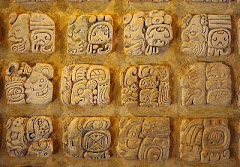
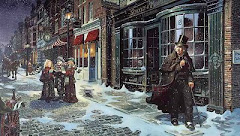


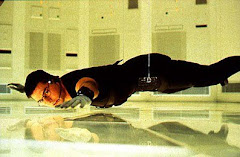
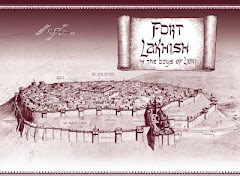



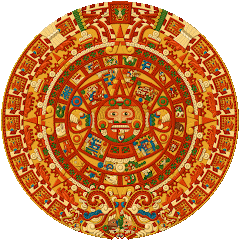

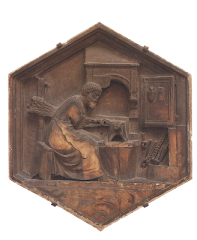

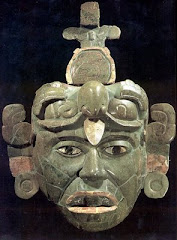



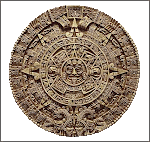

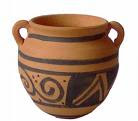
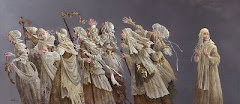
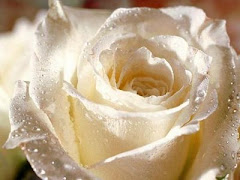


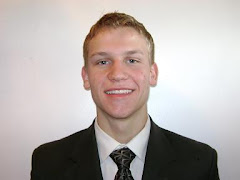
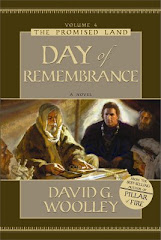



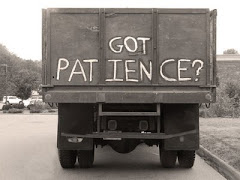
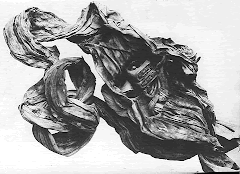
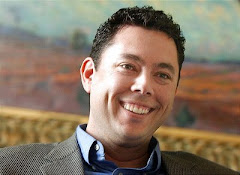

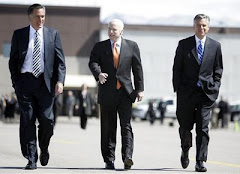

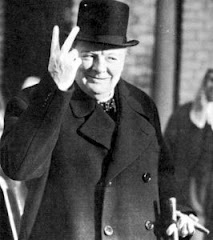
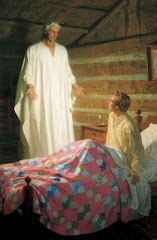
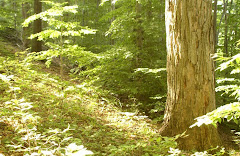

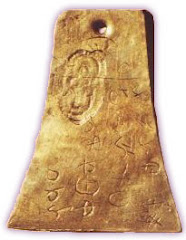


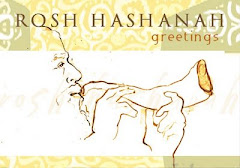

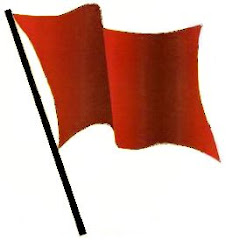
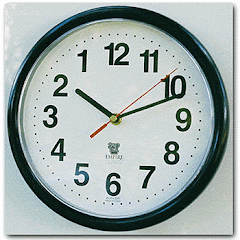

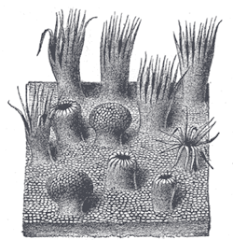
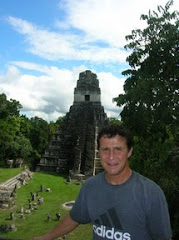


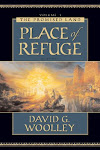
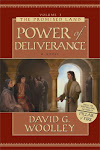

6 comments:
Fascinating information! I love learning about things like this. Thank you for taking the time to post such interesting facts. And I love your post about those who leave no comments. Thanks!
I'm finding it all very interesting too Dave. I bought the book yesterday (on the 22nd!) and am enjoying it finally after this long wait. Thanks!
I'm a bit confused still though. Your blog entry says JS returned every Sept 22 for four years but then you say that he came on Sept 27th later in the blog. Is that a typo or am I misunderstanding something?
Janet:
Thanks for stopping by and leaving a comment. I havr to ask. Did the NO COMMENT post shame you into leaving a comment. LOL.... Thanks for joining the discussion.
David:
How is your missionary son doing these days? Some day I expect him to direct an academy award movie about the Book of Mormon. Good luck with that one. Really happy you are busy reading volume four. Please let me know what you think.
Yes it was a typo. I am going to have to call a meeting with the Top of the Morning staff and find out who let that typo slip....you just can't good help these days.
Love you all,
David G. Woolley
Actually, no, I had planned to leave a comment because I was so fascinated by your post. I loved the no comment post because I have a blog too and it seems like my friends and family just look and never comment. It usually takes me bribing them with a free book before they'll comment. It's just funny the way that goes.
Greg is doing great in Ontario CA. Wish I could send him the book but he'll love it when he returns. I'm enjoying it a lot, especially as I'm teaching the Book of Mormon, first half this semester and thinking about all these things all the time. Thanks again!!
David
David Williams:
Great to hear you're teaching Book of Mormon class at BYU. I wish I was one of your students. Do you mind me inviting myself to sit on the back row and listen? When do you teach your class and where. Do they let tithe payers sit in on a class or do I have to pay tuition for the privledge of hearing your lecture?
That's terrific Greg is serving the Lord in Caly. What a great place to serve. Hope he doesn't catch the west coast nice weather bug and decide to stay forever. I was serious about his movie directing future. I hope he becomes the next Frank Capra.
If its not against school policy, I would love to be a fly on the wall in your Book of Mormon class. Let me know.
All the best,
David Woolley
Post a Comment